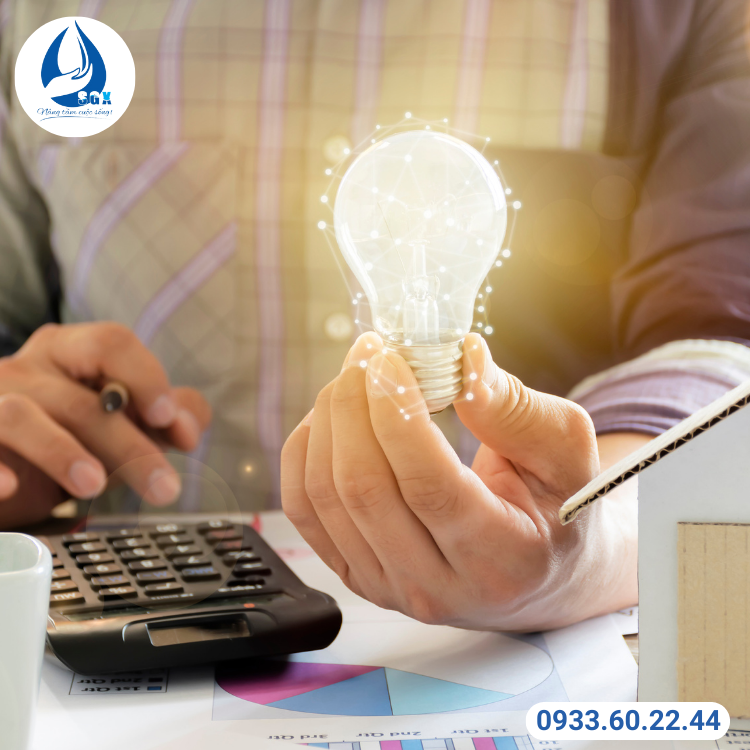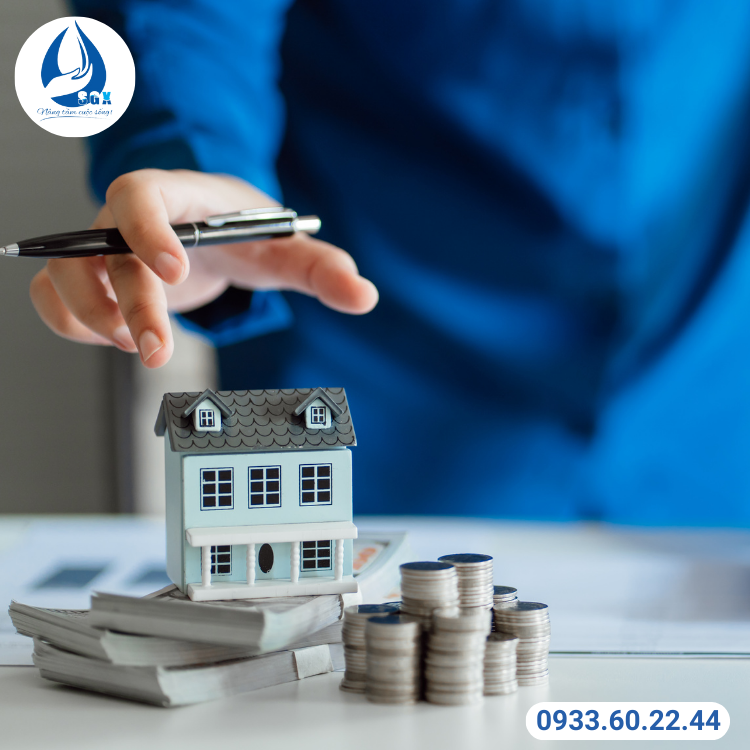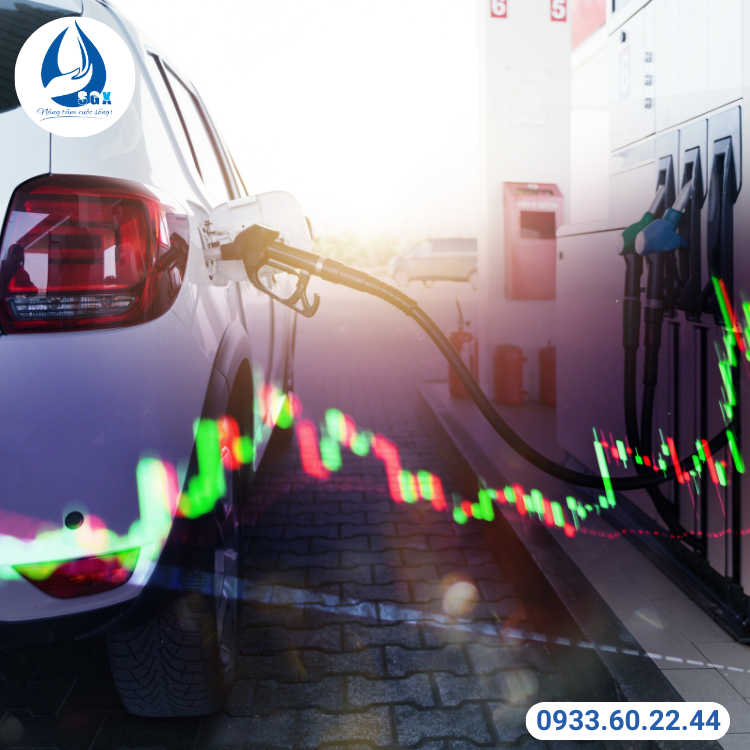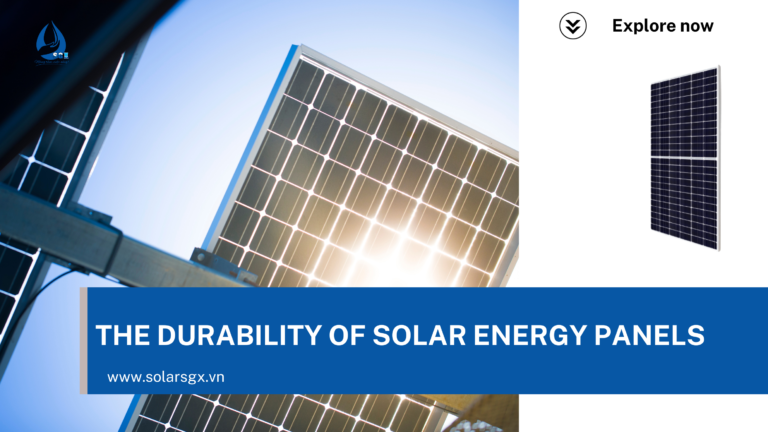6 reasons to solar energy installation for households
Consumption of solar energy is increasingly becoming a popular trend, especially as people become more concerned about environmental protection and reducing their monthly electricity bills. In this context, installing solar energy for households not only brings economic benefits but also contributes positively to environmental protection. Below are 6 reasons to install solar energy for households:
Savings on Electricity Costs
Being one of the greatest benefits of installing a solar energy system for households, saving on electricity costs is facilitated through various ways that solar energy offers:

Utilizing free energy from sunlight:
Solar energy is a free natural resource. By installing a solar power system, you can harness sunlight to generate electricity without incurring any costs for this energy source.
Reducing or completely eliminating monthly electricity costs:
A solar energy system can provide enough electricity for household appliances, from lighting to washing machines and refrigerators. This helps significantly reduce or even completely eliminate monthly electricity costs.
Limiting the impact of electricity price fluctuations:
Electricity prices can fluctuate over time and market conditions. By utilizing solar energy, you become more independent from these fluctuations and do not have to worry about electricity prices rising significantly in the future.
Reducing maintenance costs:
Solar energy systems require less maintenance costs compared to traditional energy sources. After installation, you only need regular maintenance to ensure efficient operation, helping save long-term costs.
Environmental Protection
Installing a solar energy system not only helps save on electricity costs but also contributes positively to environmental protection.

Does not produce emissions:
Solar energy does not produce emissions or harmful substances into the environment like traditional energy sources such as coal, oil, or gas. Eliminating these emissions helps reduce air pollution and improve urban air quality.
Reducing greenhouse gas emissions:
Utilizing solar energy helps reduce greenhouse gas emissions generated from burning fossil fuels for electricity production. Greenhouse gases contribute to the greenhouse effect, contributing to climate change and global environmental issues.
Protecting natural resources:
Utilizing solar energy helps reduce the consumption of non-renewable natural resources such as:
- Coal
- Oil
- Natural gas
Reducing noise pollution:
Compared to traditional energy production methods such as:
- Generators
- Thermal power plants
Solar energy systems do not generate noise pollution.
Preserving biodiversity:
Using solar energy helps reduce environmental degradation and loss of biodiversity associated with the extraction of fossil fuels.
Increasing Property Value
Installing a solar energy system not only helps save on electricity costs but can also increase the value of the property.

Attracting Home Buyers:
Today’s home buyers are seeking energy-efficient features and environmental protection. Having a solar energy system can attract attention from potential home buyers and make it more appealing in the market.
Reducing Electricity Costs for Buyers:
A home with an integrated solar energy system will help home buyers save on electricity costs from the day they move in.
Elevating Green Energy Credentials:
A solar energy system is an emblem of green energy credentials and the homeowner’s commitment to environmental protection.
Supporting Incentive Policies:
Many countries and regions have implemented incentive policies to encourage the use of renewable energy, including financial support and low tax rates for solar energy systems. Owning such a system can bring benefits in terms of taxes and other policies for homeowners.
Independence from Energy Price Fluctuations:
Installing a solar energy system for households provides another significant benefit, which is independence from energy price fluctuations.

Mitigating the Impact of Rising Electricity Prices:
Electricity prices often fluctuate over time and market conditions. Utilizing solar energy helps households avoid sudden increases in electricity costs, as they are not entirely dependent on the public grid.
Stabilizing Monthly Electricity Expenses:
With a solar energy system, households can predict and stabilize their monthly electricity expenses more effectively.
Creating Emergency Energy Sources:
In case of public grid failures or power outages, solar energy systems can serve as backup power sources for households.
Reducing Energy Instability:
Using solar energy helps reduce energy instability and makes households more independent from issues related to energy supply from the public grid.
Long-term Cost Savings:
Despite the initial cost of installing a solar energy system, most systems have a long lifespan and require minimal maintenance costs in the long run.
Government Policy Support and Encouragement:
Government policy support and encouragement for the installation of solar energy systems for households are crucial factors in promoting the development of renewable energy and environmental protection.

Financial Support:
The government can provide financial policies such as initial financial support, preferential loans, or tax incentives to reduce the installation costs of solar energy systems for consumers.
Establish Clear Renewable Energy Goals and Strategies:
The government can set specific goals and strategies for renewable energy, including promoting the use of solar energy.
Develop Encouraging Policies:
The government can establish encouraging policies such as financial support programs, tax reduction policies, or incentives for solar energy users.
Promote Research and Technological Development:
The government can invest in research and development of solar energy-related technologies to reduce costs, increase efficiency, and create new solutions for consumers.
Provide Information and Advice:
The government can provide information and advice to consumers about the benefits of using solar energy, as well as about available support policies and programs.
Easy Maintenance and Longevity
One of the significant benefits of installing a solar energy system for households is the ease of maintenance and long-term durability of the system.

Minimal Hardware and Mechanical Components:
Solar energy systems typically have few hardware and mechanical components, reducing the risk of breakdowns and requiring less maintenance compared to other energy systems.
No Fuel Costs:
Solar energy utilizes sunlight as its energy source, eliminating the need for regular fuel costs associated with fossil fuel energy sources.
Longevity:
Solar energy systems often have a long lifespan, typically ranging from 25 to 30 years or more with proper maintenance.
Simple Maintenance:
Solar energy systems usually do not require complex maintenance tasks. Maintenance typically involves regular cleaning and inspections to ensure efficient operation..
Warranty and Support Services:
Many manufacturers and suppliers of solar energy systems offer various warranty and support packages to customers, making it easy for them to manage and maintain their systems.
Điện năng lượng mặt trời Sài Gòn Xanh – Nâng tầm cuộc sống!
- TƯ VẤN – KHẢO SÁT – THI CÔNG
- 0976 123450 (phím 1), 096 5594559
- Website: solarsgx.vn
- Fanpage:Điện năng lượng mặt trời Sài Gòn Xanh
- Địa chỉ: 21 Sến Quỳ, Ninh Sơn, Thành phố Tây Ninh, Tây Ninh





